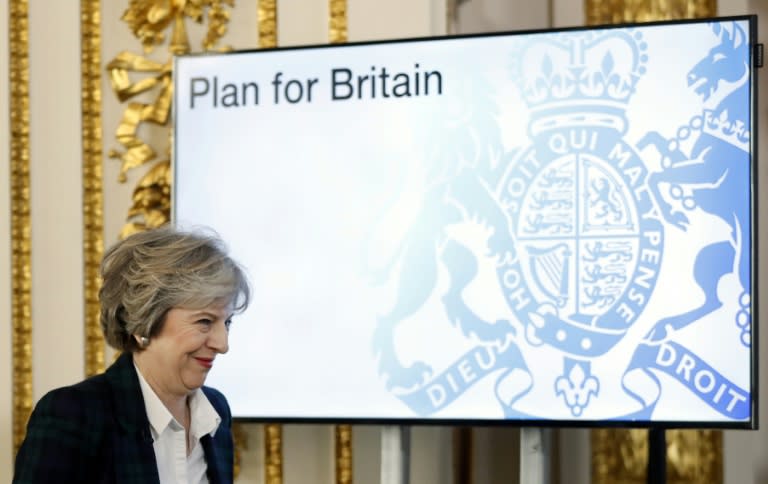EU, British citizens voice Brexit fears
From healthcare costs to burdensome bureaucracy, some of the millions of EU citizens in the UK and Britons living on the continent aired their Brexit concerns in parliament this week as negotiations loom. More than six months after Britain voted to leave the European Union in a shock referendum result, an estimated three million European nationals residing in Britain are none the wiser about their fate. The same can be said of some 1.2 million British citizens living in the 27 other EU countries, who are anxiously waiting to learn how London's divorce from Brussels will affect their lives. "People are worried -- the uncertainty, the threats of deportation, the sense of being ostracised; people are extremely stressed," Barbara Drozdowicz, a Pole who heads the East European Resource Centre, told a parliamentary committee. Her concerns echoed those of Christopher Chantrey, a British citizen who has lived in France since 1973. "Our main concerns are the loss of EU citizenship and the rights devolving from that: right to remain, healthcare arrangements and the future of pensions," he said. - 'Nightmare' pile of paperwork - The status of Europeans living in a post-Brexit UK remain unclear, with Prime Minister Theresa May refusing to guarantee their rights ahead of formal negotiations with Brussels. May has said their status will be dependent on that of British citizens in other parts of the EU and has promised to make this a "priority" in the talks. The uncertainty has prompted some EU citizens to apply for permanent residency in Britain, which according to Anne-Laure Donskoy, a French academic in the southwestern city of Bristol, involves a "nightmare" 85-page document. She said the document includes questions such as: "Have you ever been a terrorist?" Donskoy criticised the complexity of the forms and said the process discourages people from applying, while warning of the administrative burden Britain will face if all EU citizens living in the UK were to apply for residency under the current system. "You end up with a figure of 149 years... taking us to somewhere around 2166" to process all applications, she said. "This is not the country I came to live in 30 years ago." Following the June 23 referendum there was an increase in xenophobic attacks reported to the authorities. Drozdowicz said she had noticed a change in attitudes towards foreigners: "The reception has become colder, more distant." Polish ministers flew to Britain last September after attacks on Poles, including one murder, and urged the UK to do more to protect their nationals. The National Police Chiefs' Council said more than 3,000 incidents were reported to police nationwide between June 16 and 30 last year, a 42 percent increase from the same period in 2015. - Pensioners 'suffering financially' - In continental Europe, British citizens fear they could be forced to return to Britain after their home country cuts its EU ties. "If that happened to me, how would my Italian wife get a right to stay in the UK, and my son? We are talking about splitting families," said Gareth Horsfall, a British financial advisor who lives in Rome. Those who are determined to stay in their adopted countries, however, did appear less worried about the paperwork involved. Sue Wilson, who lives in Spain, described a "very simple process" with a two-page form to apply for permanent residency. But the fall in the value of the pound in recent months has worried British retirees in Spain, she said. "Pensioners are already suffering financially as a result of the exchange rates. They are concerned if they will be able to afford healthcare if they will need to pay for it. "Many moved to Spain originally because it was cheaper to live there. Many are struggling," she said. Around 70,000 British pensioners live in Spain, compared to just 62 Spanish retirees in Britain, according to comments made in November by Chris Wormald, permanent secretary at the UK's Department of Health. As a result, both Wilson and Chantrey spoke of the "drain" on Britain's health services if thousands of pensioners had to return to the UK. The unifying call to the parliamentary committee was for the government to commit to protecting their rights. "It would be a good way of opening the negotiations, a magnanimous gesture," Chantrey said.





